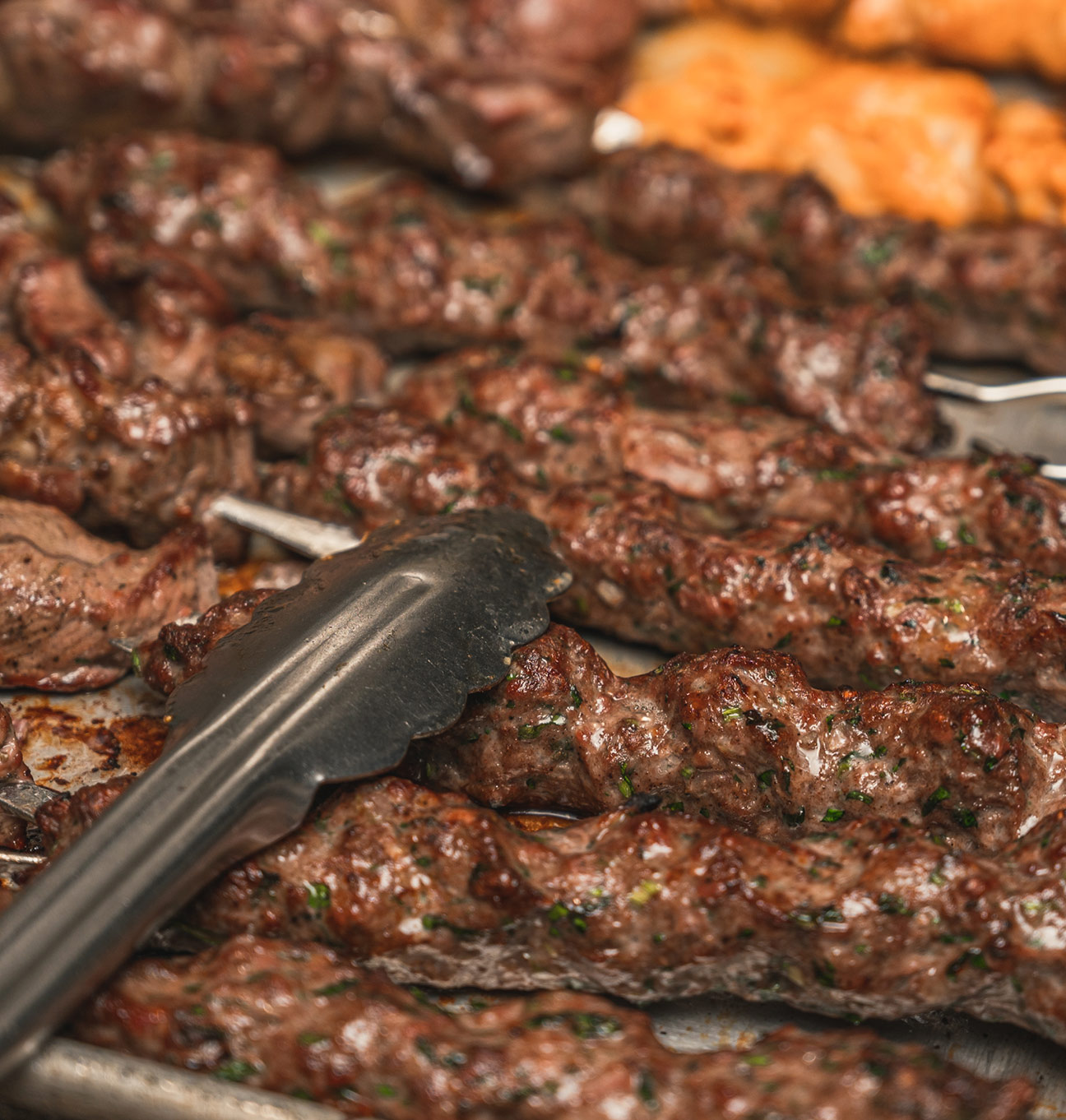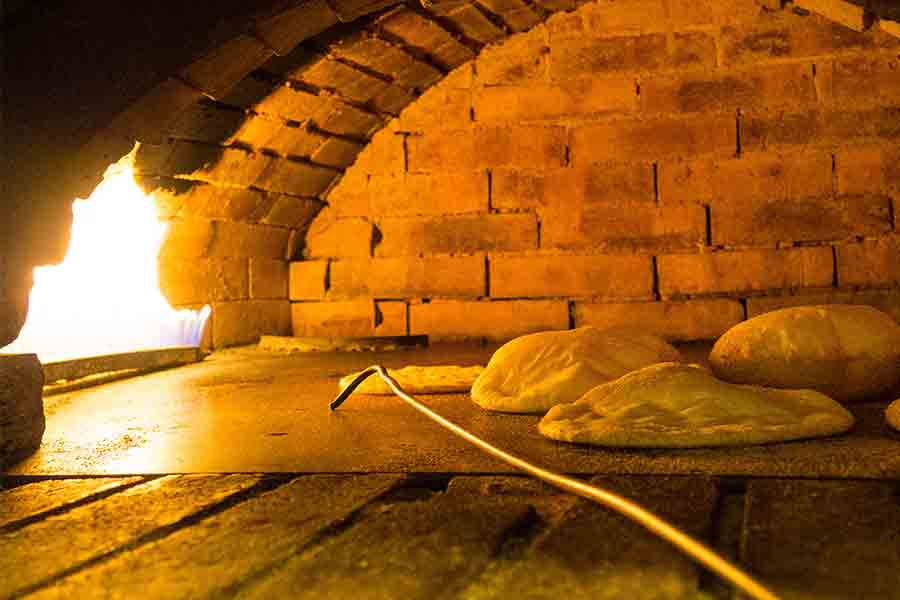
Lebanese food, anyone? Make a beautiful cultural dish at home with some traditional ingredients and cooking techniques. It’s not that hard.
Lebanese cuisine has been around for many years and has held its tradition, making very little changes since ancient times. Healthy and mouthwatering, no wonder Lebanese food continues to rise in popularity not only in Sydney but around the world.
Lebanese culture places a strong emphasis on food and is considered a stronghold the people. Not only is food important for their daily wellbeing, but is rather central to their social and family lives. Sharing a Lebanese meal is all about enjoying the company of family and friends and the creation of memories.
“There is no love sincerer than the love of food”
– George Bernard Shaw
- Heavenly herbs
Fresh, flourishing and full of life. These are the words that come to mind when thinking about the ingredients used within the cuisine. Famous for the incorporation of ingredients such as mint, parsley, cucumber and tomatoes, these ingredients play a key role in many meals. Whether you are making a simple falafel wrap, shawarma or a salad such as fattoush, the additional fresh ingredients add a burst of flavour and charm to meals. Sydney is no stranger to fresh produce which means your home can be no stranger to Lebanese cuisine. - Bread is life
How can you say no to bread? We certainly can’t! Hot, fresh and soft, nothing is more important than bread. This is supported by the famous ancient philosopher, Pythagoras where he once wrote that “the universe begins with bread.” Although this may seem absurd, if we think about it closely it makes complete sense.
Bread has had a tremendous impact on humanity with many people in ancient times surviving on nothing but bread and water. Lebanese food places a lot of emphasis on bread and is a central part of the culture being a core element in many meals.
Name a better combination. Bread and baba ghannouj. If baba ghannouj is not your thing, enjoy Lebanese bread with a variety of other dips or use it as a method of picking up your falafel balls or marinated meats. - Lively legumes
Chickpeas and lentils make up a large part of the Lebanese cuisine, being incorporated within many classic meals such as falafel, hummus and mujadara. Let’s give the spotlight to the ever so humble chickpea. It has played such an important role in human history where it was among one of the first crops ever grown by humans, and also one of the healthiest.
Quick history lesson: the chickpea was also a popular source of protein during ancient times as it was a cheaper alternative to meat. Chickpeas still remain popular in many meals. However, no one knows to better prepare this specific ingredient like the Lebanese. - Mouthwatering lamb
Many Lebanese dishes today contain a range of protein options including beef, lamb and chicken. However, lamb is a traditional element of the cuisine and is incorporated within many important dishes such as Kibbeh Nayeh as well as the popular lamb kofta kebabs.
Cooking a traditional Lebanese meal is not that difficult and a couple of key ingredients should be kept in your pantry so you can be prepared for a Lebanese feast. Along with the others mentioned above, lemons are an important ingredient used in salad dressings, soups, hummus and other dips. Onion and garlic are also heavily used within the cuisine for stews, dips and seasoning.
Lebanese cooking is not complete without a spice rack. Salt is number one with others including ground allspice used in dishes such as kibbeh and even tabouli. Ground cinnamon and sumac are also used in many salads and stews, so remember to stock up!
Now that you have a better understanding of the traditional ingredients and herbs used in many Lebanese dishes, it is beneficial to learn more about the traditional cooking techniques used in the Lebanese culture.
Vertical roasting is a key technique used since the early days of the Ottoman reign over the Lebanese people. Vertical spits enable meat to be cooked in its own delicious fats and juices, making it ever so tender and delicious. A famous dish which uses this method is the shawarma. If you don’t already know what shawarma is, you’re missing out. It is a beautiful piece of well-seasoned meat, full of flavour. There are many different types of this dish coming from a range of cultures including the Greek Gyros, the Armenian Tarna and the Turkish Doner Kebab.
Lebanese cuisine involves a whole lot of grilling, and this technique has been around for a long time. Many vegetables and meats are often grilled on skewers, bringing out a beautiful chargrilled flavour to the already beautiful ingredients. A key dish within the cuisine which is grilled is the traditional ground lamb kofta kebabs, a speciality.
Lebanese people have mastered the art of baking, with wood fire ovens being a prominent part of cooking culture within the Middle East. Dishes which incorporate this cooking technique include specialties including the flatbread manoosh (Lebanese pizza) as well as delicious desserts including the baklava or knafeh.
Frying food is not too common within Lebanese cuisine. However, it does have its place within the kitchen, coming in handy when preparing the crispy falafel balls or fried kibbeh.
Although we encourage you to cook up a storm at home, Sydney we know that you are spoiled. There is nothing better than to step away and enjoy a feast without all the mess.
Sahra By the River located in Sydney’s west brings to you one of the best Lebanese food experiences! Our food highlights the importance of love and cultural roots which enhances the Lebanese food experience; through authenticity.
I’m sure you have all googled ‘Lebanese food near me.’ But no longer do you need to do as Sahra by the River has you covered. The ultimate choice for a mouthwatering experience making you come back for more.
Make a reservation for your next lunch/dinner event or call us on today on (02) 9635 6615. We promise we won’t disappoint!




